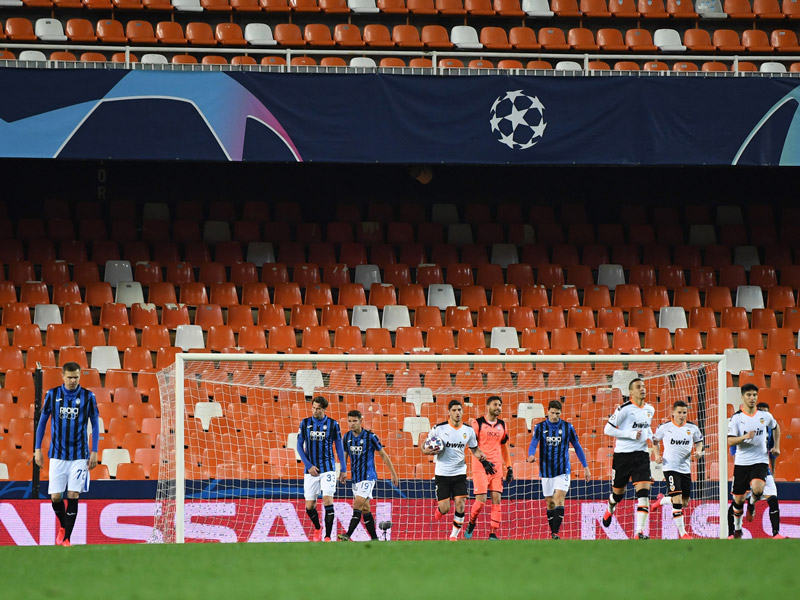Paddy Agnew’s Notes From Italy: Coronavirus Turns Atalanta Dream Into Nightmare
When Atalanta qualified for the second round of the Champions League last December, beating Ukraine side Shaktar Donetsk 3-0 in Kharkiv, 2,000 fans turned up at Bergamo airport at half two in the morning on a wet and bitter night to welcome home the team. For the Bergamo based side it was truly a magical night.
Two months later, when the club pulled off an even more remarkable result, qualifying for the quarter finals with an emphatic 8-4 aggregate defeat of Valencia, there was no one waiting for the players when they flew home. The reason for that, of course, was the Coronavirus epidemic which has hit the Lombardy town especially hard.
Even before that March 10th return leg game, it was obvious that sooner or later, the Coronavirus epidemic was likely to put a halt (if we are lucky a temporary halt) to Atalanta’s “fairy tale” run in Europe’s premier club competition. The thing is that Bergamo is fast heading for the unwelcome title of being the town worse hit by Covid-19 in all Italy.
As we write, this modern day plague has killed 2,158 people and all the grim indications suggest that it has not finished yet, nor indeed may not finish for anything from three to 12 months or even longer. The region of Lombardy accounts, at least so far, for roughly two thirds of all Coronavirus related deaths in Italy (2,500 at time of writing). Bergamo just 60 kilometres north east of Milan, is the worst hit town in the region. In the week just finished, March 8 to March 16, Bergamo registered 330 deaths. In the same week in 2019, it recorded 23 deaths.
The small town of Bergamo, with just 120,000 inhabitants, has been devastated by this modern day plague. The medical services are at the point of collapse, the city cemetery has been closed for the first time since 1946 and the local paper, “L’Eco di Bergamo”, recently carried 11 pages of death notices. The Grim Reaper, in the shape of some form of mediaeval plague, is wreaking havoc in poor Bergamo.
[collection name=”small” accordion=”mobile” excerpt=8]
In such a context, considerations about football become greatly re-dimensioned. Colleague, Carlo Cavanesi, who writes for “L’Eco Di Bergamo”, says that for the last few, highly successful years, it has seemed as if nothing was more important to the people of Bergamo than the fairy tale being lived out by their club, adding:
“Now they just don’t care…There is a terrible climate of sadness in this town now…”
Maybe Bill Shankley was wrong ,after all. Life and death are more important. Certainly, Coronavirus has taken (much of) the joy and magic out of the Atalanta experience this winter. After the club had qualified for the Champions League quarter finals, beating Valencia 3-4 away for an 8-4 aggregate win, their Dutch midfielder Marten de Roon summed it up succinctly, in a Twitter post, saying:
“After the game against Valencia we were happy for an hour before going back to the situation in Bergamo. ‘Cause it’s really bad. The streets are completely empty. All you hear is the sound of ambulances and the church bells, that ring every for the people who sadly passed away.”
The Atalanta story is just a tiny part of the great devastation being wreaked on the world by the Coronavirus epidemic. It is a sobering reminder that, in the end, some things are more important than a football match, no matter how passionately people feel about the Beautiful Game.
Yet, in this dark hour, we would like to think that Atalanta will get back out there, in a matter of months or longer, and resume their “dream” run in the Champions League. Win or lose, it will be good to see the team from Bergamo put this Plague nightmare far behind us all. Here is hoping and praying.
Don’t forget to follow World Soccer.






